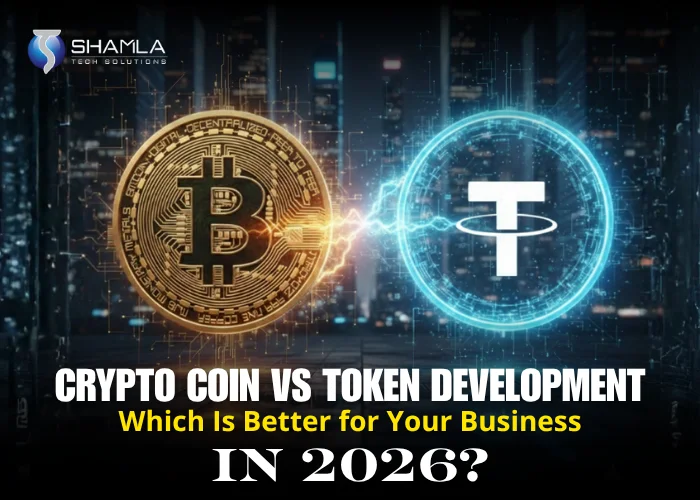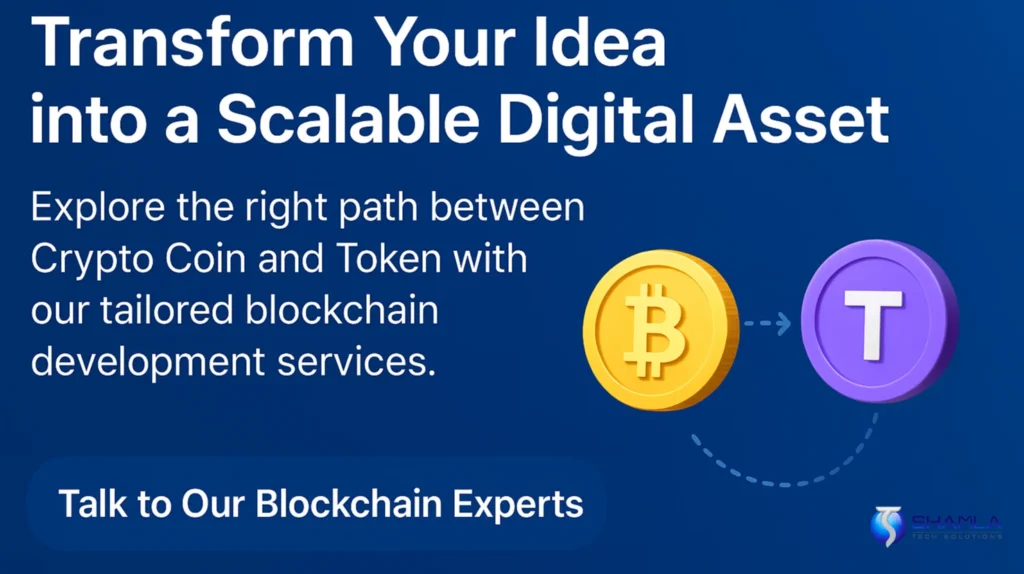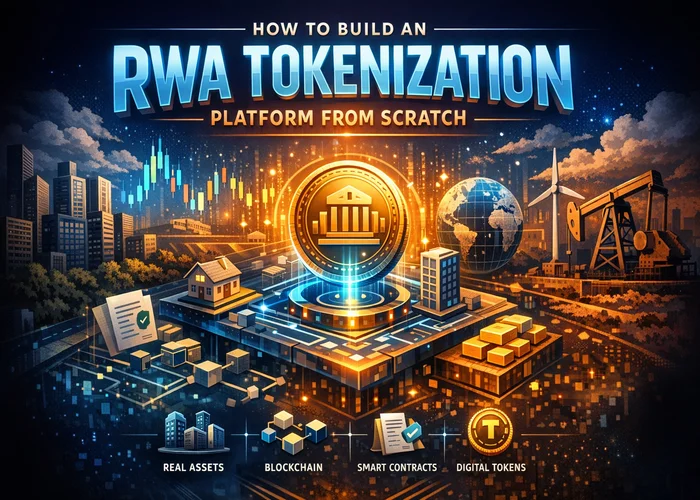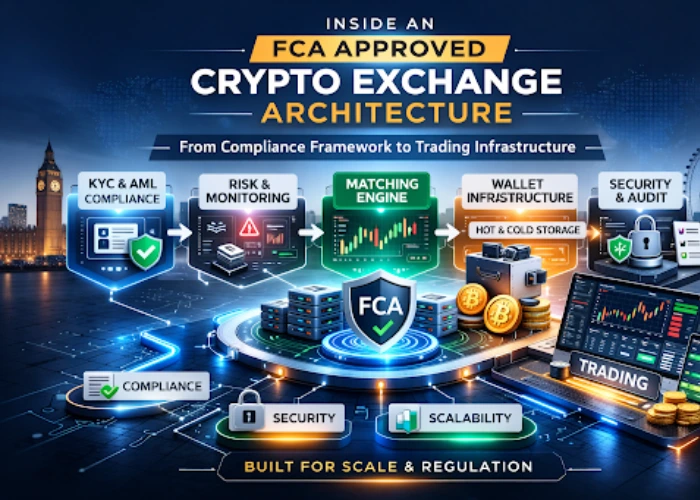As the blockchain ecosystem rapidly evolves, the question of Crypto Coin vs Token has become crucial for businesses aiming to innovate in digital finance and decentralized ecosystems. In 2026, understanding whether to build a crypto coin or a token can directly impact your project’s scalability, liquidity, and long-term success.
Crypto coin development services allow businesses to launch independent blockchains with full control, while token development companies help create digital assets on existing networks like Ethereum or BNB Chain. Knowing the difference between crypto coin and token helps you choose between building infrastructure or leveraging one.
Whether you want to create your own crypto coin or develop a utility-driven token, the right strategy ensures seamless growth in Web3, DeFi, and digital asset ecosystems. This guide breaks down every aspect of Crypto Coin vs Token in blockchain, helping you choose the right blockchain development solution for your business in 2026.
Understanding the Basics: What Is a Crypto Coin and What Is a Token?
In the evolving blockchain landscape, the Crypto Coin vs Token discussion forms the foundation of every Web3 project. Whether you’re a startup, enterprise, or investor looking to enter digital finance, understanding the difference between crypto coin and token helps determine your project’s direction, cost, and scalability.
Both coins and tokens represent digital assets, but their origins, purposes, and underlying technologies differ significantly. Let’s explore this in detail.
What Is a Crypto Coin?
Core Characteristics of a Crypto Coin
Feature | Description |
Independent Blockchain | Each coin functions on its own blockchain (e.g., Bitcoin, Ethereum). |
Native Utility | Used for payments, transaction fees, staking, and network validation. |
Requires Custom Blockchain Development | Built through advanced crypto coin development services involving full-stack blockchain architecture. |
Decentralization | Operates without dependency on another network. |
Examples | Bitcoin (BTC), Ethereum (ETH), Litecoin (LTC), Solana (SOL). |
When to Choose a Crypto Coin
- When your business wants complete blockchain control.
- When launching a new decentralized ecosystem or mainnet.
- When your model depends on block validation, staking, or network governance.
Building a coin means building a foundation — ideal for enterprises aiming to develop crypto asset development services or create independent blockchain economies.
What Is a Crypto Token?
A crypto token is a digital asset created on an existing blockchain using smart contracts. Tokens rely on the infrastructure of established blockchains like Ethereum, BNB Chain, or Solana. They don’t have their own blockchain — instead, they leverage existing security, consensus, and transaction systems.
This makes tokens faster and cheaper to develop through a token development company, which uses standards such as ERC-20 (fungible tokens) or ERC-721 (non-fungible tokens).
Core Characteristics of a Token
Feature | Description |
Dependent on Existing Blockchain | Built on established blockchains (Ethereum, Polygon, etc.). |
Smart Contract-Based | Created through programmable logic that defines token supply and functions. |
Cost-Effective | No need to develop a blockchain from scratch. |
Used for Multiple Utilities | Includes DeFi, NFTs, governance, or asset representation. |
Examples | USDT (Tether), UNI (Uniswap), AAVE, SHIB. |
When to Choose a Token
- When you want to launch quickly with lower costs.
- When your focus is on utility, governance, or tokenization in blockchain.
- When you aim to represent real-world assets or create DeFi/NFT projects.
Tokens are the ideal solution for businesses seeking fast deployment, scalability, and integration with existing blockchain infrastructure.
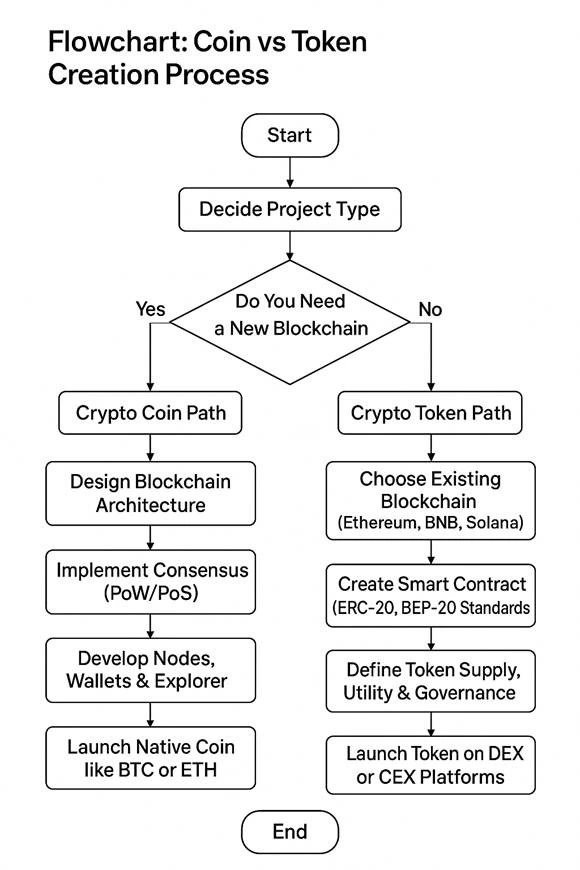
Why Understanding Crypto Coin vs Token Matters for Businesses
Knowing whether to build a coin or token shapes your business strategy.
- A coin helps build a self-sustaining blockchain economy — ideal for large-scale enterprises or government-backed projects.
- A token helps drive innovation in DeFi, NFTs, and asset tokenization, offering rapid deployment and global reach.
In 2026, businesses leveraging the right blockchain development solutions will not only scale faster but also gain competitive advantages in liquidity, governance, and digital ownership.
Crypto Coin vs Token: A Detailed Comparison
Aspect | Crypto Coin | Crypto Token |
Blockchain Infrastructure | Built on a dedicated blockchain with its own protocol and consensus mechanism. | Created on an existing blockchain like Ethereum, BNB Chain, or Solana using smart contracts. |
Development Process | Complex — requires custom blockchain development solutions, consensus design, and node deployment. | Simplified — developed by a token development company using predefined token standards (ERC, BEP, etc.). |
Creation Complexity | High – needs blockchain architecture, node setup, and native wallet development. | Moderate – relies on smart contract deployment and configuration. |
Primary Use Cases | Payments, staking, governance, and network security. | Utility tokens, DeFi tokens, NFTs, asset representation, and loyalty rewards. |
Maintenance & Security | Managed independently through its own validators or miners. | Relies on the parent blockchain’s validators for security and maintenance. |
Development Cost | Higher, due to infrastructure creation and ongoing maintenance. | Lower, leveraging existing blockchain ecosystems. |
Time to Market | 2–6 months for full blockchain deployment. | 2–6 weeks for smart contract development and token launch. |
Scalability | High potential, but depends on protocol upgrades. | Inherits scalability from the host blockchain (e.g., Ethereum Layer-2s). |
Ideal For | Projects building a new blockchain ecosystem or native currency. | Projects focusing on apps, dApps, DeFi utilities, and tokenized assets. |
Examples | Bitcoin (BTC), Ethereum (ETH), Litecoin (LTC). | Uniswap (UNI), Chainlink (LINK), Tether (USDT). |
Crypto Coin vs Token in Blockchain: The Technical Difference
The debate of Crypto Coin vs Token is not just a semantic one — it defines how your blockchain ecosystem is designed, operated, and monetized. In 2026, when every business is looking to enter the Web3 ecosystem, understanding the difference between crypto coin and token has become essential for entrepreneurs, startups, and enterprises aiming for sustainable blockchain success.
At its core, a coin represents a self-sustaining blockchain network, while a token functions within an existing blockchain. The distinction impacts everything from scalability and cost to governance and interoperability.
Let’s dive deeper into how crypto coin vs token in blockchain differ technically, operationally, and strategically.
Understanding the Core Infrastructure: Crypto Coin vs Token in Blockchain
Technical Layer | Crypto Coin | Crypto Token |
Blockchain Dependency | Built on a dedicated blockchain developed via custom blockchain development solutions. | Created on an existing blockchain using smart contract frameworks. |
Consensus Mechanism | Implements native consensus protocols (PoW, PoS, DPoS, or hybrid). | Inherits consensus from the parent chain (e.g., Ethereum, Solana). |
Network Validation | Requires validators/miners for transaction confirmation. | Relies on the parent blockchain’s validator infrastructure. |
Development Tools | Needs full crypto coin development services — including node setup, APIs, wallets, and explorers. | Built using token standards like ERC-20, BEP-20, or SPL through a token development company. |
Governance & Security | Managed by the blockchain owner or decentralized governance nodes. | Depends on the parent blockchain’s governance and smart contract auditing. |
How Coins and Tokens Are Created
Crypto Coin Development Flow
- Define Project Vision & Consensus Mechanism: Choose Proof-of-Work, Proof-of-Stake, or Delegated Proof-of-Stake based on network needs.
- Design Blockchain Architecture: Build ledger structure, data model, and node interaction mechanisms.
- Develop Core Protocols: Implement block generation, mining/staking algorithms, and validation rules.
- Launch Genesis Block: This marks the creation of the network’s first transaction and initiates native coin circulation.
- Build Wallets & Explorer: Create wallets, APIs, and block explorers for users and developers.
- Integrate Exchanges: Partner with centralized (CEX) and decentralized (DEX) exchanges for coin listing and liquidity.
Token Development Flow
- Select Host Blockchain: Choose Ethereum, BNB Chain, Solana, Polygon, or Avalanche depending on ecosystem goals.
- Create Smart Contract: Use token standards like ERC-20, ERC-721 (NFTs), or BEP-20 for programmable functionality.
- Define Tokenomics: Decide total supply, distribution model, vesting, and burn or mint logic.
- Deploy Token Contract: Launch via audited smart contracts to ensure compliance and security.
- Integrate Wallets & Platforms: Add support for wallets like MetaMask or Trust Wallet and connect to DeFi or NFT marketplaces.
- List & Market: Launch on DEXs/CEXs for liquidity and investor access.
Advantages of Crypto Coin Development
Key Benefits of Coin Development
- Complete Blockchain Autonomy: Build your own decentralized economy with governance, validators, and reward systems.
- Native Tokenomics Control: Configure block size, reward emission, staking models, and transaction fees.
- Brand Credibility: Being a blockchain protocol owner positions your business as a true innovator.
- Advanced Scalability: Add layer-1 or layer-2 scaling modules tailored to your industry — finance, supply chain, or energy.
- Enhanced Security: Implement native consensus algorithms ensuring tamper-proof, fully auditable transactions.
Example Use Case:
Advantages of Token Development
Key Benefits of Token Development
- Rapid Time to Market: Launch your project in weeks with ready-made frameworks.
- Low Development Cost: No need to build or maintain a blockchain.
- Instant Ecosystem Access: Plug into thousands of wallets, exchanges, and dApps.
- Utility Across Domains: Power DeFi platforms, NFT marketplaces, gaming economies, and DAO governance.
- Built-in Compliance: Benefit from the parent blockchain’s audits, token standards, and governance models.
Example Use Case:
Why Coins Attract Institutional Investors
Institutions prefer coins because they represent the backbone of blockchain infrastructure — not just utility assets.
- Provide end-to-end ecosystem ownership, governance control, and staking authority.
- Symbolize serious infrastructure investment and long-term vision.
- Created through expert crypto coin development services, ensuring auditability and scalability.
- Offer higher resilience against regulatory or network-level changes.
Example: Governments developing CBDCs or corporate giants launching proprietary layer-1 blockchains rely on coin models for control and credibility.
Why Tokens Appeal to Retail Investors
For startups and individual investors, tokens deliver accessibility and versatility.
- Built on trusted networks like Ethereum, BNB Chain, or Polygon.
- Easy to trade, stake, and use across decentralized ecosystems.
- Backed by professional token development services ensuring security and scalability.
- Perfect for community-driven models, NFT economies, and DeFi ecosystems.
Example: Projects like Uniswap (UNI), Chainlink (LINK), or USDT (Tether) showcase the power of tokens built on existing blockchains — fast, functional, and user-centric.
Crypto Coin vs Token: Which Is Better for Your Business in 2026?
Business Type | Recommended Option | Reason / Advantage |
Blockchain Startups | Crypto Coin | Offers full network control, branding, and custom ecosystem development. |
DeFi Projects | Crypto Token | Enables quick integration with liquidity pools and decentralized exchanges. |
Enterprises & Corporations | Crypto Coin | Provides greater security, compliance, and network autonomy. |
Gaming / Metaverse Platforms | Crypto Token | Ideal for in-game currency, rewards, and interoperability across dApps. |
Asset Management & RWA Firms | Crypto Token | Facilitates tokenization in blockchain for real-world assets (RWAs). |
Governments / Banks / FinTechs | Crypto Coin | Suitable for stablecoin or CBDC development using regulated networks. |
Final Insight: Crypto Coin vs Token for 2026
In 2026, hybrid ecosystems will emerge where coins power infrastructure and tokens drive application-level utilities. As the blockchain landscape evolves, Crypto Coin vs Token decisions will determine how businesses scale in Web3.
- Coins represent sovereignty, infrastructure, and innovation.
- Tokens represent speed, flexibility, and adoption.
For long-term blockchain ecosystems — build your coin. For fast-market deployment and DeFi innovation — launch a token.
Partner with the right crypto asset development services provider to turn your blockchain idea into a scalable success story.
Choosing the Right Path for Your Project: Crypto Coin vs Token
When entering the blockchain economy, one of the biggest decisions every entrepreneur faces is Crypto Coin vs Token — which one aligns best with your business goals, technical needs, and long-term growth strategy?
The Crypto Coin vs Token debate is not just about technology — it’s about the control, cost, and scalability your project requires. Choosing between developing a crypto coin or launching a blockchain-based token can directly influence how your ecosystem evolves in 2026 and beyond.
If you plan to create your own blockchain, manage transactions, and establish an independent digital economy, then a crypto coin is your best option. A crypto coin creation company will help you design a native blockchain, implement consensus mechanisms like PoW or PoS, and deploy your network for use cases such as CBDCs, enterprise blockchains, or decentralized networks. In the crypto coin vs token in blockchain discussion, coins represent complete sovereignty — full control over validation, governance, and ecosystem expansion.
On the other hand, if you want to launch faster, reduce costs, and leverage existing infrastructure, then token development is the smarter path. A token development company can help you build tokens on proven platforms like Ethereum, BNB Chain, or Polygon. Tokens excel in projects focused on DeFi, gaming, NFTs, metaverse ecosystems, or tokenization in blockchain, where agility and interoperability are more important than owning the underlying chain.
In short:
- Choose Coin → For control, scalability, and brand ownership.
- Choose Token → For speed, flexibility, and ecosystem integration.
The difference between crypto coin and token defines your entire blockchain strategy — and understanding the Crypto Coin vs Token roadmap is key to ensuring long-term sustainability and investor confidence in your digital asset ecosystem.
How Shamla Tech Helps in Crypto Coin and Token Development
At Shamla Tech, we specialize in empowering businesses to navigate the evolving world of Crypto Coin vs Token development with confidence and innovation. Whether you aim to start your own crypto coin from scratch or launch a tokenized digital ecosystem, our expert team delivers end-to-end blockchain development solutions tailored to your vision.
We understand that the Crypto Coin vs Token decision is more than a technical choice — it’s a strategic foundation for your Web3 business model. Our blockchain architects analyse your goals, market, and scalability needs to recommend the right approach — from custom blockchain creation to token deployment on leading platforms like Ethereum, BNB Chain, Polygon, or Solana.
Our Expertise Includes:
- Full-scale crypto coin development services for startups and enterprises.
- Smart contract engineering for tokenization in blockchain and DeFi ecosystems.
- Integration with wallets, DEXs, and CEXs for seamless market access.
- Ongoing blockchain maintenance and security audits.
- Tailored consulting to determine the best crypto coin vs token in blockchain strategy.
With our proven experience in crypto asset development services, we help you turn your blockchain idea into a scalable, compliant, and investor-ready reality. Whether you’re building a next-gen layer-1 blockchain, a DeFi protocol, or a tokenized asset platform, we ensure your Crypto Coin vs Token journey is future-ready and strategically aligned with 2026’s Web3 trends.

